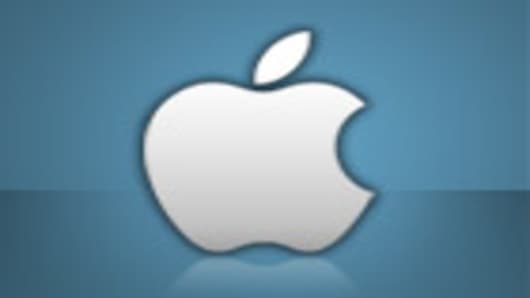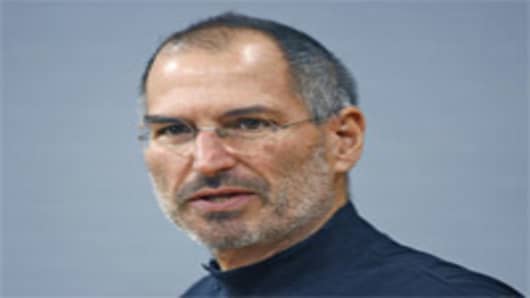I have little doubt that both those stories are true. Unlike earlier reports this week from Henry Blodget's Silicon Alley Insider and the New York Post, both citing nameless, faceless hedge fund managers as "worried" about Steve Jobs and his health. Curious that those stories would come out the day Applewas preparing to release earnings. Blodget has made it his personal crusade to get Apple to disclose the real truth behind Jobs and his illness. Full disclosure, he says, is only fair, and right. That Apple is mis-leading its investors. And needs to stop. Puh-lease. Does anybody catch the irony here of a disclosure-challenged Blodget coming to the rescue of "misled" investors?
But I digress. The simple truth is this: Apple knows that it must disclose Jobs' health status if it is somehow material to the company. By not disclosing his health issues, and calling them a private matter, Apple is tacitly telling all of us that whatever is ailing Jobs is not serious enough to be material to the company. That doesn't mean it might not rise to that level at some point, but for now, it doesn't. Could it tomorrow? Sure. Anything's possible. But you could have been saying, "could it tomorrow" since the day after his 2004 cancer diagnosis was made public.
Bottomline: Apple can't comment on rumors. Doesn't comment on rumors. And shouldn't. If it starts now, it'll have to comment all the time. Disagree? Consider: If I were to call Apple and say, "Rumors are that Steve's cancer is back." Apple responds, "No, it's not." Two days later, I call Apple and say, "Rumors are, Apple's adopting Windows as its new operating system." Apple responds, "We can't comment." Hmmmm, denying one rumor, but not commenting on another? Seems pretty clear that Apple will be adopting Windows as its new operating system. Once you address one rumor, you have to address them all. And with Apple, the company would have to hire an army of employees to handle the task. Kinda like dealing with kidnappers. Pay a ransom to one, and pretty soon, kidnappings skyrocket. Just look at Central and South America.
Again, I digress. Trust is a tricky thing. It's something earned. True that Apple didn't disclose Jobs' original cancer diagnosis until it absolutely had to. But even then, it was adhering to the law. And met that bar. And there simply is no reason to believe anything otherwise is happening today.
During the stock options back-dating mess last year, the company was forthcoming, Jobs himself was extremely candid in answering my direct questions to him about that controversy. And even the SEC took the extraordinary step of thanking Apple for its "extraordinary" cooperation. With billions of dollars hanging in the balance, thousands of jobs, Jobs' and Apple's legacy, I know the stakes are huge, and that people can do silly things when it comes to protecting all that. All that aside, if trust is earned, Apple has earned my trust and has done nothing to shake it. That's not to say they won't. Or can't. But for now, I err on the side of taking Apple at its word.
Until the company gives me a solid reason not to. Which it hasn't. Kind of like Jobs and his health. It's material when it's material. Until then, it isn't. We might all have a prurient interest in Jobs and his private life, but prurient doesn't trump material. And "material" is all that matters. Which it's not. For now.
Questions? Comments? TechCheck@cnbc.com



